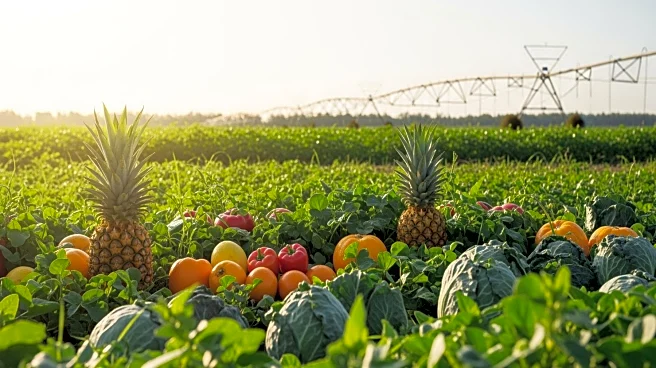What's Happening?
Algeria has announced a 4% increase in its agriculture budget for 2026, allocating 764.2 billion dinars (US$5.84 billion) to the sector. This decision follows the National Conference on the Modernization of Agriculture, where the government emphasized
the need for technology, innovation, and structural reform to boost domestic production. The budget aims to address challenges such as low cereal yields, post-harvest losses, and inadequate irrigation systems, which have contributed to Algeria's reliance on food imports.
Why It's Important?
The increased budget reflects Algeria's commitment to strengthening its agriculture sector, which is crucial for national food security and economic stability. By investing in agriculture, the government aims to reduce dependency on imports and improve productivity. This move is significant for the country's economy, as agriculture contributes 13% to GDP and employs 9% of the workforce. The focus on technology and infrastructure development could lead to long-term improvements in agricultural efficiency and sustainability.
What's Next?
The government plans to implement programs targeting irrigation efficiency, seed system improvement, and agri-food processing. These initiatives are expected to enhance food self-sufficiency and reduce import bills. Policymakers and industry stakeholders will likely monitor the impact of these investments on agricultural productivity and competitiveness. The success of these programs could influence future budget allocations and policy decisions in the agriculture sector.
Beyond the Headlines
Algeria's agricultural challenges are linked to broader environmental issues, such as climate change and water scarcity. The government's focus on modernizing agriculture highlights the need for sustainable practices and adaptation strategies. The investment in agriculture also reflects a shift towards self-reliance and resilience in the face of global economic uncertainties. The emphasis on technology and innovation may drive cultural and educational changes, promoting a more tech-savvy and resource-efficient agricultural workforce.















